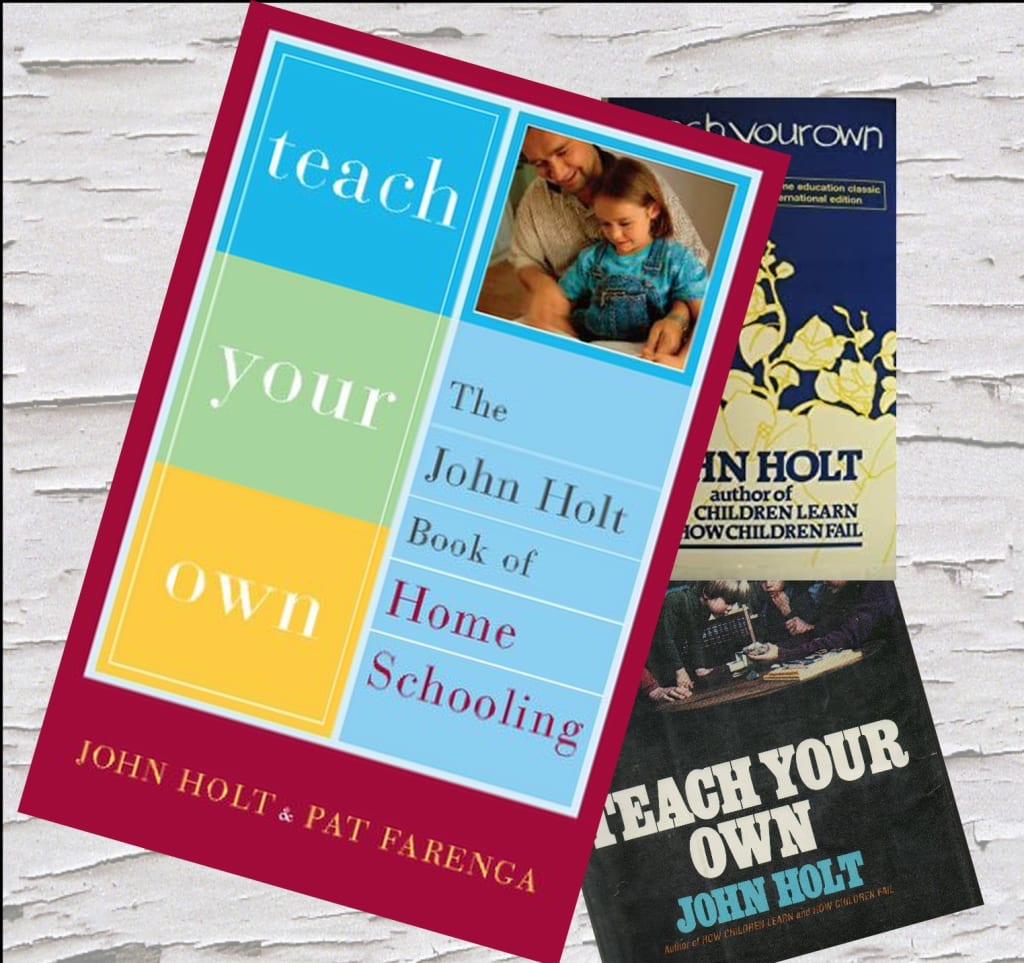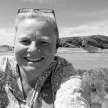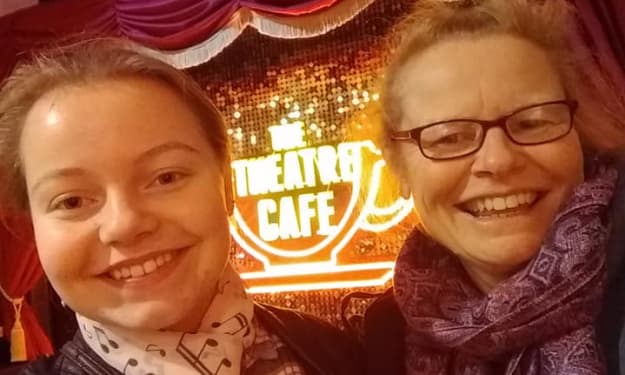Future-proofing our children
Raising a nation of innovative thinkers

"A person’s freedom of learning is part of his freedom of thought, even more basic than his freedom of speech. If we take from someone his right to decide what he will be curious about, we destroy his freedom of thought. We say, in effect, you must think not about what interests and concerns you but about what interests and concerns us.” John Holt
I first discovered the writings of John Holt, when my children were little and I was questioning whether the mainstream schooling system really was the best option for our family. We had dipped our toe in the schooling system and we didn’t like how it felt, but were unsure of our alternatives. As luck would have it, one Sunday afternoon as I was reading the weekend paper with all its extra supplements, I came across an article that held the answer. The article was about a young man who had been home educated for most of his ‘school’ years, until going on to a top English university, from where he had now just graduated with a first-class degree in law. As I read that article, home education definitely seemed the right option for us and I was keen to learn all about this way of learning for our children.
One of the first books I got my hands on was ‘Teach your own’ by John Holt. An absolute classic in the world of home education and a must read if you are considering this as an option for your children. Even if educating your child outside of the schooling system is not something you are considering, it is still a thought provoking read for all parents. It is a refreshing way to look at parenting which fully respects children and parents equally, giving calm and practical advice. It totally resonated with me and my natural parenting style.

It allowed me to shift my perception of what successful education can look like. I knew that children were always learning, right from babies, we are designed that way for our growth and survival, but it allowed me to extend that thinking to the notion that my children could continue learning without school. They could grow and develop, acquiring the skills they needed to take them into adult life, without the constraints of institutionalised learning with a compulsory curriculum.
If ever there is a time for us to open up the debate around providing an education that future proofs our children, that time is now. Limitations within state controlled, standardised learning can only limit the thinking of our future generation as they face the global issues of today. Issues that will only be resolved with free, creative, innovative thinking.
To quote the introduction;
“This book is about ways we can teach children, or rather, allow them to learn, outside of schools—at home, or in whatever other places and situations (and the more the better) we can make available to them. It is in part an argument in favour of doing it, in part a report of the people who are doing it, and in part a manual of action for people who want to do it."
As well as being a how-to-do-it manual, Holt also discusses some of the most common questions parents have around the subject. Questions pertinent at the time of writing, but still very relevant for today.
Parents are still asking, if I educate my child outside of school; “How are children going to learn what they need to know”
Holt makes the very valid point, something that now feels obvious to me, that a child may not know what it is that they may need to know in 10 years’ time, but none of us do, I know I don’t. How can any of us know what skills and information we are going to need for a particular future task or challenge in our life, we cannot predict the future. The current global pandemic has shown us that. The unknown of what lies ahead is the exciting part of life. How boring would life be, if everything was mapped out and all we had to do was go through the motions of completing the pre-determined experiences. Children and adults alike know much better than anyone else what they want and need to know right now, in the present moment. And, in our information rich society, there are many ways to access the desired knowledge we need, very quickly, along with the ability to collaborate across the globe to seek out expertise. From my personal experience of observing our children on their learning journeys, in these present moments of curiosity and problem solving, that is when their brains are most hungry and the deepest learning occurs. Not learning facts to pass a test, which are later forgotten, but skills and learning that stays, ready to be called upon again in the future if required.
A very powerful aspect of the book, is that throughout its chapters there are real life accounts and stories. To challenge and philosophise about education pedagogue is important, but to be able to give it context and examples of how it works in practice is invaluable. Home education still remains an area of education hard to quantify in terms of its success, as it does not rely on the standard teaching methods found in schools, full of standardised tests and assessments to ascertain progress of a child within state learning targets. That’s the point. Home education allows the individual to explore and develop a personal learning journey, meaningful to them. So, how do we compare students for data. Success means different things to different people. For some it is wealth and for others it is charity to others, both are valid in society, but how do we compare that. Maybe we shouldn’t. Home education is a successful alternative to mainstream schooling, so having the anecdotal evidence of real-life stories and experiences is really helpful in giving context to our own lives.
Having been inspired many years ago by Holt’s book in this way, I have now found myself inspiring others new to the journey of home education, through sharing our stories of the learning journeys of our three children as they self-directed each of their own education into adulthood. Having never had a timetable or followed any particular curriculum, each of them have taken what they needed, when they needed it from the various resources offered and from the experiences we put in their paths. No learning was compulsory, I believe you cannot force someone to learn, you can only offer opportunities to do so. They have learnt how to seek answers to questions they have, they have learnt how to learn. Despite being close in age and having similar experiences as a family growing and learning together; one is an outdoor education mentor, one a computer coder and one is studying musical theatre – all following their own passions, all successful young adults.

Another major principle that Holt invites parents to consider, is to avoid replicating school at home. I have seen first hand in families new to home education, who attempt to do this, its disastrous effects. It is unsustainable to try and uphold ‘teacher led’ school learning and rules in the home, it only leads to stress for both parent and child, straining the family relationships.
"To parents I say, above all else, don't let your home become some terrible miniature copy of the school. No lesson plans! No quizzes! No tests! No report cards! Even leaving your children alone would be better; at least they could figure out some things on their own. Live together as well as you can; enjoy life together, as much as you can. Ask questions to find out something about the world itself, not to find out whether or not someone knows it."
This statement seems very poignant at the current moment in history, when across the globe many families have found themselves unexpectedly educating their child at home due to Covid-19. Some parents have attempted to recreate school at home with limited success. However, those families who have been brave enough to simply live together, share their days together and give their children space to discover, have experienced something exciting – that learning is happening all the time. Not limited by school curriculum, it can be meaningful, with deep learning being achieved.
If you have found that your current status as temporary home educator is working well for your family, maybe this could be your ‘new normal’ and you too could continue to ‘Teach Your Own’ and raise creative, independent thinkers.
The revised and updated version of this classic along with more information about John Holt, his works and how he sparked the debate on the quality of the nation’s schools, can be found here: https://www.johnholtgws.com
Teach Your Own: The John Holt Book of Homeschooling - (Delacorte, 1981, by John Holt. Revised and updated by Patrick Farenga, Perseus 2003)
https://www.johnholtgws.com/teach-your-own-the-john-holt-book-of-homeschooling
About the Creator
Zena Hodgson
Helping women move from anxiety to calm using a solution focused approach tailored to their unique needs | 1:1 Coaching | Anxiety Therapist | Sleep better | Menopause support | Clinical Hypnotherapist & Psychotherapist
Enjoyed the story? Support the Creator.
Subscribe for free to receive all their stories in your feed. You could also pledge your support or give them a one-off tip, letting them know you appreciate their work.






Comments
There are no comments for this story
Be the first to respond and start the conversation.